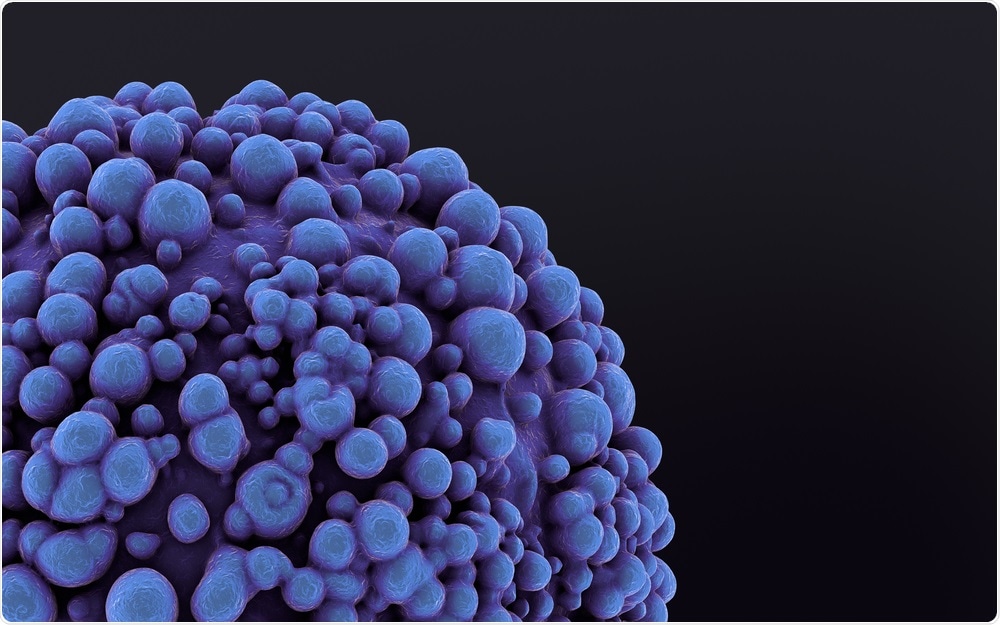Oct 2 2018
A study conducted at Augusta University has revealed that a protein known to protect healthy cells also protects cancer cells in aggressive breast cancer.
 Image Credit: Nedelcu Paul Petru / Shutterstock
Image Credit: Nedelcu Paul Petru / Shutterstock
The research suggests that heat shock protein 70 (HSP70), which protects cells from stress, seems to protect cancer cells in difficult-to-treat triple negative breast cancer, but not in the easier-to-treat estrogen-positive breast cancer.
This aggressive breast cancer hijacks your normal protective physiological process to survive the toxic environment it has created."
Hasan Korkaya, Study Author
The study revealed that tumor necrosis factor alpha (TNFα), which can induce cancer cell death, can also be manipulated to aid the survival of cancer cells.
The results also suggest that HSP70 could provide an effective target for treating certain aggressive breast cancers.
The researchers studied animal models and human breast cancer cells lines using HSP70 inhibitors and tested what happens when they administer more TNFα, which should then be able to destroy cancer rather than protect it.
They found that to protect the cancer cells, TNFα upregulates the protein A20, which then induces HSP70. This prevents the TNFα-induced apoptosis of cancer cells.
As recently reported in the journal Oncogene, Korkaya and team found that in less aggressive luminal breast cancer, TNFα does not upregulate A20 and instead aids cancer cell death.
However, overexpression of A20 in luminal breast cancer cells causes them to become more aggressive.
When the team inhibited A20 expression and then administered more TNFα to the aggressive cells, the cancer died off.
Furthermore, when they administered TNFα without first inhibiting A20, the cancer cells started to produce more of the protective protein.
Next, the team plans to find out why A20 and HSP70 are not upregulated by TNFα in luminal breast cancer.
They also intend to find out whether A20 is upregulated in patients with disease that has progressed.